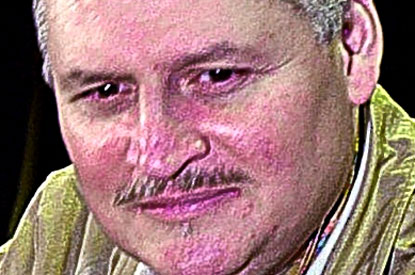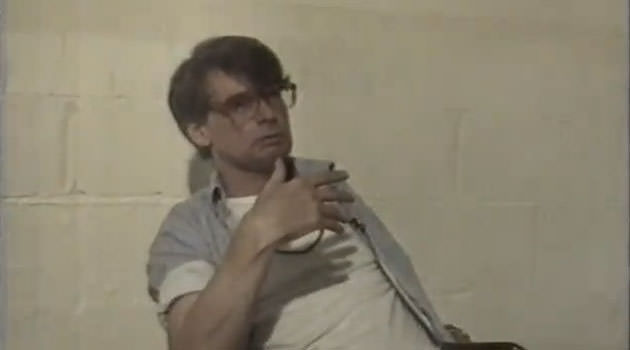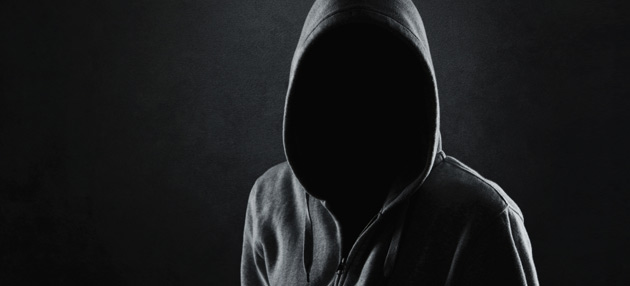For the OPEC attack, Carlos was at liberty to choose his team. He first picked two West Germans – Wilfred Bose and Joachim Klein – and shocked them by disclosing his dangerous plan. The immediate scepticism was done away with by the assurance that Carlos knew the internal security arrangement and it was too lax to worry about. Four more joined the team. One of them was a German woman by the name Gabrielle Krocher-Tiedemann, and out of the other three, two were Palestinians and one Lebanese. Their real names remained unknown and only their code names for the mission surfaced – Joseph, Khalid and Yussef. However, Bose did not take part in the attack for some reason.
Soon enough, Carlos had his team in place and also the weapons needed. He flew to Aden to confer with Haddad one last time before embarking upon the mission.
 The team gathered in Vienna and surveyed the OPEC headquarters and looked into the records of the previous meetings to gain the understanding of how things proceeded during such meetings.
The team gathered in Vienna and surveyed the OPEC headquarters and looked into the records of the previous meetings to gain the understanding of how things proceeded during such meetings.
On December 19, Carlos met his contact and returned with two large bags stuffed with M-16 rifles, P38 revolvers, Skorpion machine pistols and fifteen kilos of explosives. Another suitcase of weaponry was supplied by Klein’s Revolutionary Cell later. The weapons were cleaned and prepared, and the team was ready for the mission.
The team arrived at and entered the OPEC headquarters. Carlos inquired with a group of journalists if the meeting was still in progress, and after they received the confirmation from the journalists, the team ascended the staircase leading to the hall where the meeting was being held. At the top of the staircase they pulled their weapons out, and started running towards the reception area next to the doors of the conference hall. They had already started shooting around and in the name of security on the entire floor, there were only two Austrian police officers – Josef Janda and Anton Tichler – standing guard outside the doors of the conference room.
The receptionist, Edith Heller, managed to report the attack to the police before Klein fired into the switchboard destroying it. Inspector Tichler tried wrenching away the machine pistol from Carlos’, but the terrorist was a little too strong for that attempt to succeed. Krocher-Tiedemann shot him through his throat, and placed the dead body in the elevator and sent it to the ground floor.
Krocher-Tiedemann came across a plain-clothed Iraqi security guard in the reception area, and after a brief physical fight Krocher-Tiedemann shot the guard through the head.
Inspector Janda was caught by Carlos, who didn’t know that Janda was a policeman. Carlos forced Janda through the corridor towards the office and locked him into an abandoned office, from where Janda later called his headquarters and reported the attack with gun shots ringing in the background underscoring the urgency of the situation.
 Firing at the ceiling, Carlos entered the conference room and took control. He started talking to his hostages, and around the same time a special unit of the Austrian police arrived at the building in response to Janda’s call. They were greeted by Tichler’s body lying on the floor of the elevator. With helmets on and Uzi sub-machine guns in hand, the members of the special unit arrived at the first floor reception area. Klein and Joseph, who were covering the area, welcomed the unit with bullets. The police returned fire, which injured Klein in the stomach and thigh, and knocked the weapon off his hands. Kurt Leopolder, the head of the police squad, sustained a bullet injury to his buttocks. Klein, bleeding but not down, shouted the threat that if they did not leave, “everyone will be killed”. And with that he hurled a grenade towards the police. But the grenade did not carry too far and landed and exploded some four meters from Klein. However, the warning and the grenade explosion managed to persuade the police to withdraw fearing harm to the hostages.
Firing at the ceiling, Carlos entered the conference room and took control. He started talking to his hostages, and around the same time a special unit of the Austrian police arrived at the building in response to Janda’s call. They were greeted by Tichler’s body lying on the floor of the elevator. With helmets on and Uzi sub-machine guns in hand, the members of the special unit arrived at the first floor reception area. Klein and Joseph, who were covering the area, welcomed the unit with bullets. The police returned fire, which injured Klein in the stomach and thigh, and knocked the weapon off his hands. Kurt Leopolder, the head of the police squad, sustained a bullet injury to his buttocks. Klein, bleeding but not down, shouted the threat that if they did not leave, “everyone will be killed”. And with that he hurled a grenade towards the police. But the grenade did not carry too far and landed and exploded some four meters from Klein. However, the warning and the grenade explosion managed to persuade the police to withdraw fearing harm to the hostages.
Klein returned to the conference room to show his wounds to Carlos, who patted his head and asked him to assist in managing the hostages. There were sixty-three hostages, and were split into three different groups of ‘Liberals and semi-liberals’ (Algeria, Kuwait, Libya and Iraq), ‘criminals’ and ‘neutrals’ (Venezuela, Nigeria, Indonesia, Ecuador and Gabon). Under the head ‘criminals’ were those delegates who belonged to Saudi Arabia, United Arab Emirates, Iran and Qatar.
The hostage-taking was successful and Carlos managed to have his demands met. Klein had been moved to a hospital, and was later brought in an ambulance to board the Austrian Airlines DC9 airplane provided by the Austrian authorities as demanded by Carlos, who himself was to fly on the same plane together with the hostages.
On the airplane, Carlos took Yamani, Amouzegar and their deputies aside, seated them separately and placed bombs under their seats. On December 22, 1975, the airplane left for Algiers from where they had planned to get a new, larger airplane and take off for Tripoli, Libya.
The Foreign Minister of Algeria welcomed Carlos warmly, but Algeria refused to provide another plane to Carlos. Carlos asked the DC-9 to be refuelled and they took off for Tripoli. At Tripoli the welcome was cold and the Libyan government refused to provide a plane and demanded that the Libyan hostages be released. Carlos eventually released Libyan delegates and five others, asked the plane to be refuelled and ordered the pilot to take it back to Algiers. The hostages were finally released at the Algiers airport, from where Carlos and his accomplices also drove away under intense media glare.
Austria asked Algeria to extradite Carlos. Algeria turned down the request citing absence of an extradition treaty between the two nations. The French never made such a request because they did not want to offend their erstwhile colony. The fact was that Carlos had been granted political asylum as part of the ransom.
As per Haddad’s instructions, the Arab hostages were to be executed, which Carlos did not do. Later, both Abu Sharif and Joachim Klein confirmed that Carlos receive a sum of anywhere between 20-50 million dollars to release Arab hostages safely, which he kept for his personal use. Carlos reportedly told his lawyers later that the sum was paid on behalf of the Iranians by the Saudis, but he did not keep it for his personal use. The sum was diverted and was “lost by the revolution”.
However, Haddad was unhappy with the disobedience, which led to Carlos’ expulsion from the Popular Front. However, Haddad did not make the expulsion public for several months, which enabled Carlos to claim later that he left Popular Front of his own accord.
After holidaying for a while, Carlos settled in Aden, South Yemen. The Libyan leader Muammar Qaddafi is said to have supported Carlos throughout. It is also alleged with considerable persuasive force that the idea and funding for OPEC attack came from Qaddafi himself. Carlos’ stay in both Algiers and Aden were also financially supported by Qaddafi.
 Carlos had always wanted to have his own terrorist group, and when Haddad’s attacks started failing one after the other, the desire grew stronger. In December 1977, he travelled to Baghdad, Iraq, together with Libyan intelligence officers to meet Saddam Hussein, who offered support to Carlos, which the Jackal accepted readily, for it meant the support of Al Mukharabat, Iraq’s KGB-trained secret service. A further impetus to Carlos’ plans was provided by Wadi Haddad’s death in March 1978 at the age of 49. Leukaemia was the suspected cause of death. However, there are also theories that suspect foul play in the death of Haddad.
Carlos had always wanted to have his own terrorist group, and when Haddad’s attacks started failing one after the other, the desire grew stronger. In December 1977, he travelled to Baghdad, Iraq, together with Libyan intelligence officers to meet Saddam Hussein, who offered support to Carlos, which the Jackal accepted readily, for it meant the support of Al Mukharabat, Iraq’s KGB-trained secret service. A further impetus to Carlos’ plans was provided by Wadi Haddad’s death in March 1978 at the age of 49. Leukaemia was the suspected cause of death. However, there are also theories that suspect foul play in the death of Haddad.
Haddad’s death paved the way for Carlos to offer his terror services to Middle Eastern nations. Carlos managed to rope in hardened extremists from Switzerland, Syria and Lebanon with core members brought in from Revolutionary Cells of West Germany. He called the group Organization of Arab Armed Struggle.
While Carlos was busy putting together his organization, the CIA and SDECE, the French secret service, stepped up their efforts to nail him. Carlos also travelled to Cuba and made an alliance with Fidel Castro. However, his travel to Moscow did not yield results, as the Soviets did not offer support.
The turning point arrived when Carlos’ wife, Magdalena Kopp, and Swiss terrorist, Bruno Breguet, were arrested in Paris in February 1982, having been found in possession of a car containing explosives. Carlos mounted a full-fledged attack on French targets, which led to the building up of international pressure on East European states to give up supporting Carlos.
The doors of the Western world started closing on Carlos and he was no longer aligned with the Arab cause as well. He Hungry expelled in 1985. He found shelter in Syria, but was forced to remain inactive. He was forced to leave Syria in 1991 after Iraqi government approached him in 1990. Later, he gained better protection in Jordan.
However, French and US authorities exerted pressure on the Sudanese authorities and offered a few irresistible deals. Finally, on August 14, 1994, Sudan handed Carlos over to the French authorities. He was taken to Paris and charged with the murders of two policemen and Michel Moukharbal in 1975. The trial commenced on December 12, 1997 and concluded in his conviction on December 23, 1997. He was sentenced to life imprisonment. He is presently serving his sentence in a French prison. In 2001, in a Muslim ceremony, Carlos married his lawyer, Isabelle Coutant-Peyre.
Originally published as part of a three-part ‘Crime File’ in LAWYERS UPDATE in December 2011.





